
St. Martin: A Hidden Gem in Guernsey
Nestled in the captivating island of Guernsey, St. Martin is a picturesque village that offers a unique blend of history, natural beauty, and charming local culture. With its enchanting lanes and beautiful coastal views, this quaint village is perfect for those looking to escape the hustle and bustle of city life. Explore the fascinating historical sites, such as the 12th-century St. Martin's Parish Church, which showcases stunning medieval architecture. The Little Chapel, a miniature church decorated with seashells and broken china, is another must-visit landmark that captures the essence of St. Martin's artistic spirit. Nature lovers will be delighted by the scenic walking trails that wind through the village and along the coastline. Moulin Huet Bay, immortalized in paintings by Renoir, offers breathtaking views and a peaceful atmosphere for a relaxing day out. Don't forget to visit the local markets and artisan shops, where you can find unique souvenirs and sample delicious Guernsey delicacies.
Local tips in St. Martin
- Visit the Little Chapel early in the morning to avoid the crowds and get the best photos.
- Pack comfortable walking shoes to explore the scenic trails and coastal paths.
- Check the local market schedules to experience the best of Guernsey's fresh produce and handmade crafts.
- Bring a picnic to Moulin Huet Bay and enjoy a meal with stunning ocean views.
- Take some time to chat with the friendly locals and learn about the village's rich history and culture.
St. Martin: A Hidden Gem in Guernsey
Nestled in the captivating island of Guernsey, St. Martin is a picturesque village that offers a unique blend of history, natural beauty, and charming local culture. With its enchanting lanes and beautiful coastal views, this quaint village is perfect for those looking to escape the hustle and bustle of city life. Explore the fascinating historical sites, such as the 12th-century St. Martin's Parish Church, which showcases stunning medieval architecture. The Little Chapel, a miniature church decorated with seashells and broken china, is another must-visit landmark that captures the essence of St. Martin's artistic spirit. Nature lovers will be delighted by the scenic walking trails that wind through the village and along the coastline. Moulin Huet Bay, immortalized in paintings by Renoir, offers breathtaking views and a peaceful atmosphere for a relaxing day out. Don't forget to visit the local markets and artisan shops, where you can find unique souvenirs and sample delicious Guernsey delicacies.
When is the best time to go to St. Martin?
Iconic landmarks you can’t miss
Castle Cornet
Discover the maritime history and breathtaking views at Castle Cornet, a historic fortress in Guernsey.
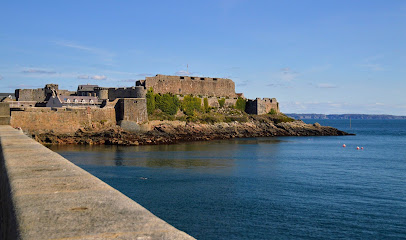
The Little Chapel
Discover the enchanting Little Chapel in Guernsey, a hidden gem adorned with stunning mosaics that reflect creativity and devotion.
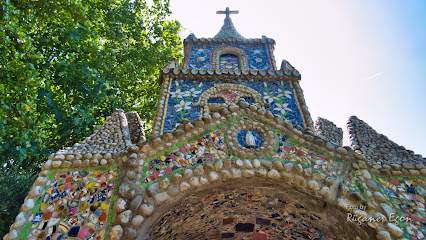
Hauteville - Victor Hugo House
Discover the inspiring life of Victor Hugo at his captivating Guernsey home, where literature and history come alive.
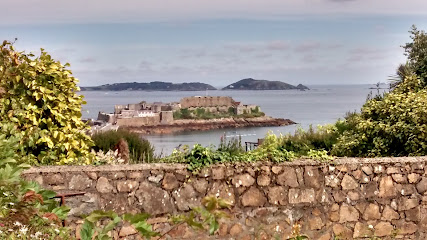
German Occupation Museum
Discover the impactful history of Guernsey at the German Occupation Museum, where stories of resilience and bravery come alive in immersive exhibits.
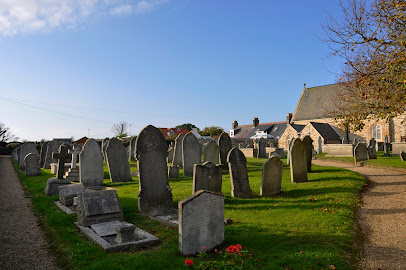
Guernsey Museum & Art Gallery
Explore the artistic and historical treasures at Guernsey Museum & Art Gallery, a must-visit for tourists seeking to understand the island's vibrant culture.
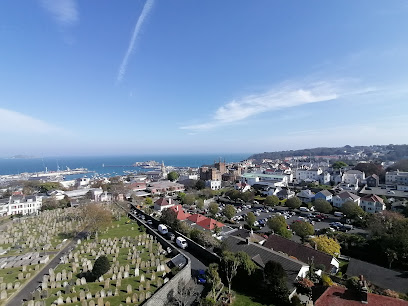
Jerbourg Kiosk
Experience the breathtaking views and delicious refreshments at Jerbourg Kiosk, a must-visit café in the heart of Guernsey's natural beauty.
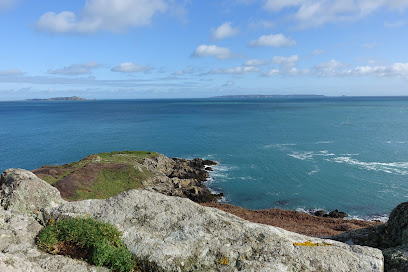
Sausmarez Manor
Explore Sausmarez Manor, an 18th-century estate in Guernsey, where history meets stunning gardens and captivating architecture.
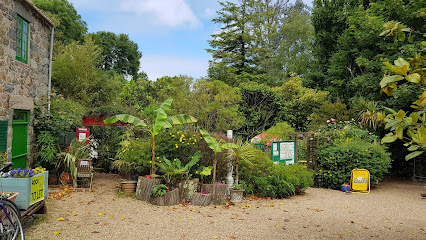
German Underground Hospital
Explore the German Underground Hospital in Guernsey, a captivating historical museum that reveals the island's WWII secrets and medical history.
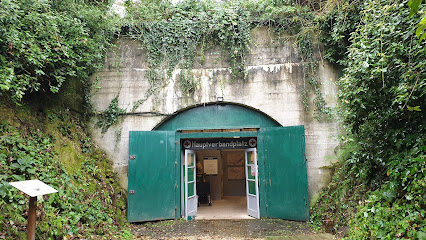
Fort Grey Shipwreck Museum
Discover the captivating maritime history at Fort Grey Shipwreck Museum, where tales of shipwrecks and Guernsey's nautical heritage come to life.
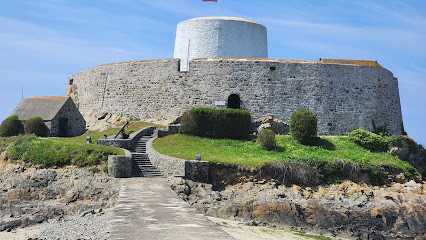
La Villette Hotel
Experience the perfect blend of comfort and leisure at La Villette Hotel in Guernsey, featuring a bar, bistro, and leisure center for an unforgettable stay.

Town Church of St. Peter Port
Discover the serene beauty and historical significance of the Town Church of St. Peter Port, a cultural landmark in Guernsey's vibrant capital.
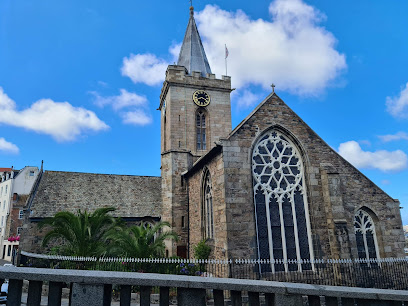
Fort Hommet
Visit Fort Hommet in Guernsey to discover a historic fortress with stunning views and rich military heritage, perfect for history lovers and nature enthusiasts.
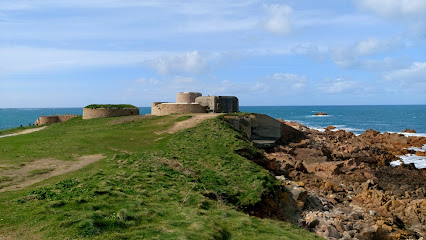
National Trust of Guernsey - Folk and Costume Museum
Experience Guernsey's vibrant culture and history at the Folk and Costume Museum, where tradition meets storytelling in a charming park setting.
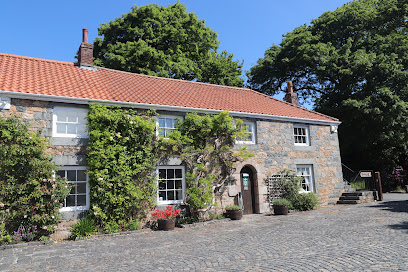
Vale Castle
Discover Vale Castle, a historical landmark in Guernsey, where rich heritage meets breathtaking views in a picturesque setting.
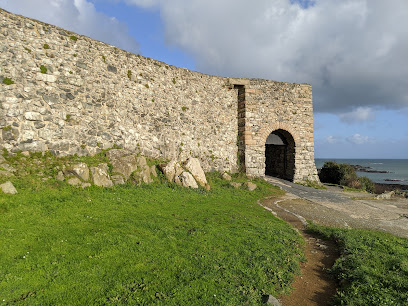
Moulin Huet Bay
Discover the serene beauty of Moulin Huet Bay, where stunning coastal views and vibrant marine life await in St. Peter Port, Guernsey.
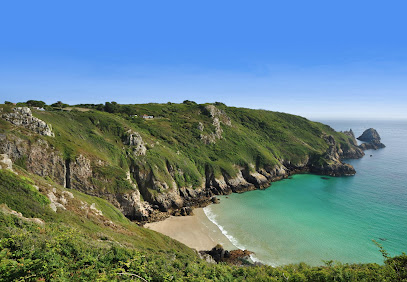
Unmissable attractions to see
Castle Cornet
Experience the rich history and breathtaking views at Castle Cornet, Guernsey's iconic fortress overlooking the sea.
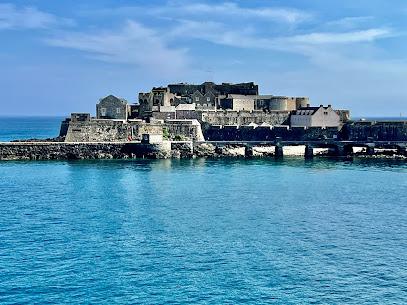
Hauteville House
Explore the artistic legacy of Victor Hugo at Hauteville House, a captivating museum in Guernsey that celebrates literature, history, and breathtaking views.
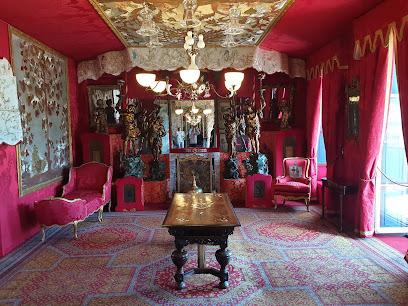
German Occupation Museum
Explore the poignant history of Guernsey during World War II at the German Occupation Museum, a must-visit tourist attraction.
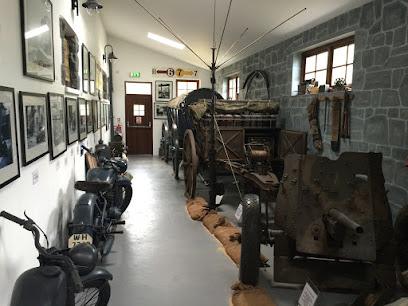
St Peter Port Harbour
Experience the vibrant charm of St Peter Port Harbour, a picturesque marina in Guernsey with stunning views, delightful eateries, and rich history.
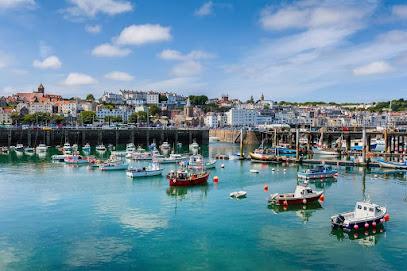
Town Church St. Peter Port
Discover the architectural beauty and spiritual heritage of the Town Church in St. Peter Port, a serene retreat in the heart of Guernsey.
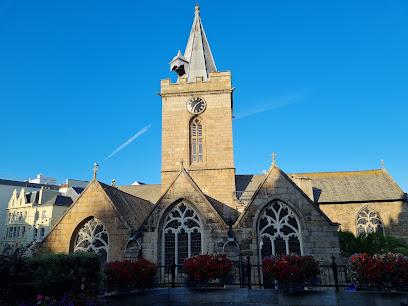
National Trust of Guernsey - Folk and Costume Museum
Explore Guernsey's vibrant heritage at the Folk and Costume Museum, showcasing traditional costumes and local culture in beautiful Saumarez Park.
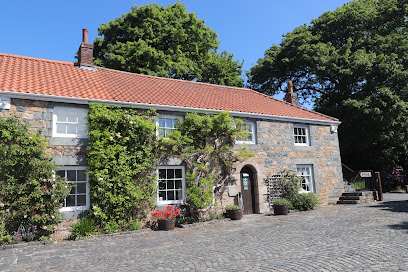
Vale Castle
Explore the enchanting Vale Castle in Guernsey, a historical gem offering breathtaking views and a rich tapestry of history.
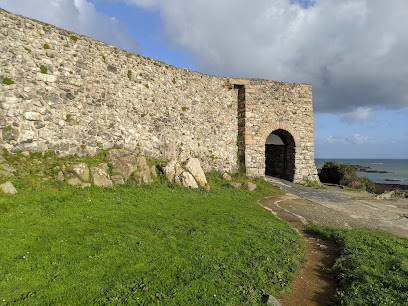
Delancey Park
Discover the serene beauty of Delancey Park, a lush green oasis in Guernsey perfect for relaxation, family outings, and outdoor adventures.
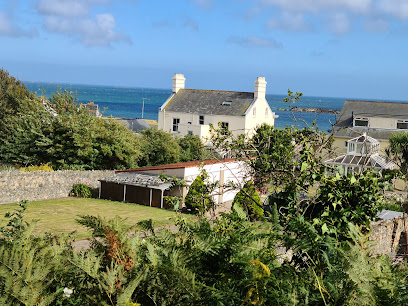
La Vallette Garden
Experience the tranquility and beauty of La Vallette Garden, a serene escape in Guernsey with stunning coastal views and vibrant plant life.
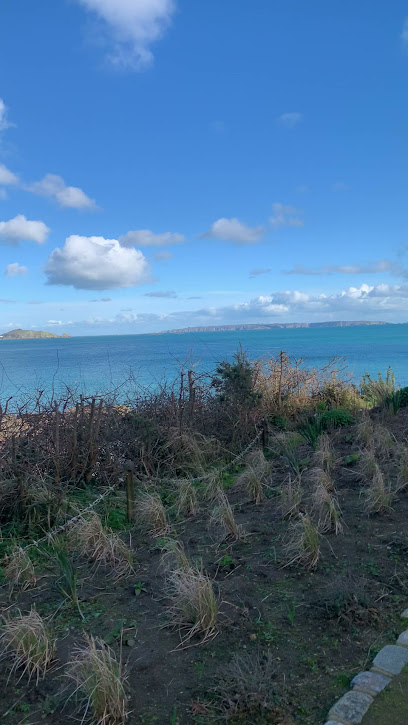
Guernsey Fairy Trail
Discover the enchanting Guernsey Fairy Trail, a magical journey through nature and folklore perfect for families and nature lovers alike.
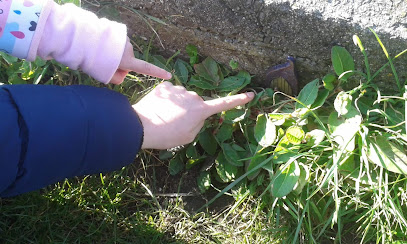
Essential places to dine
Dix Neuf
Experience the culinary delights at Dix Neuf in Guernsey - where local flavors meet global cuisine in a charming brasserie setting.
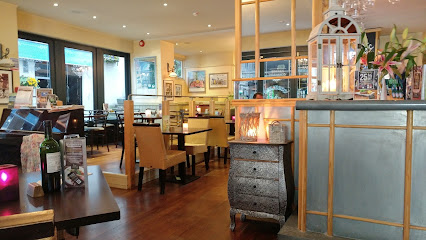
Slaughterhouse - Randalls
Experience exceptional dining at Slaughterhouse - Randalls in Guernsey; where local flavors meet stunning waterfront views.
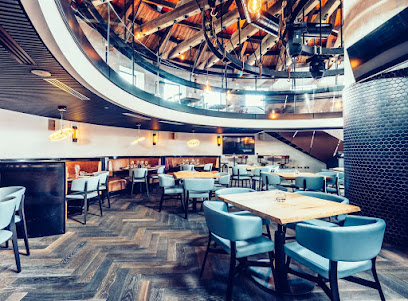
Thomas De La Rue
Discover the vibrant atmosphere and culinary delights at Thomas De La Rue, Guernsey's beloved gastropub blending tradition with modern dining.
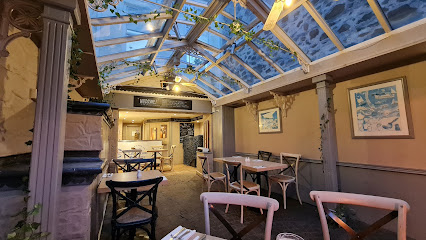
Octopus Restaurant
Experience exquisite seafood and stunning views at Octopus Restaurant in St. Peter Port - a culinary treasure on Guernsey's coast.
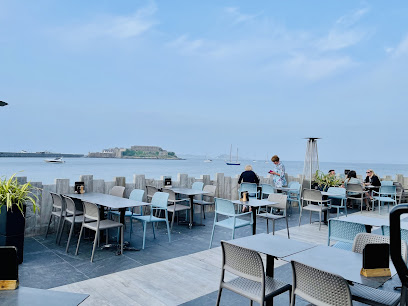
Christies Brasserie
Savor exquisite local cuisine at Christies Brasserie in Guernsey - where every dish tells a story of flavor and tradition.
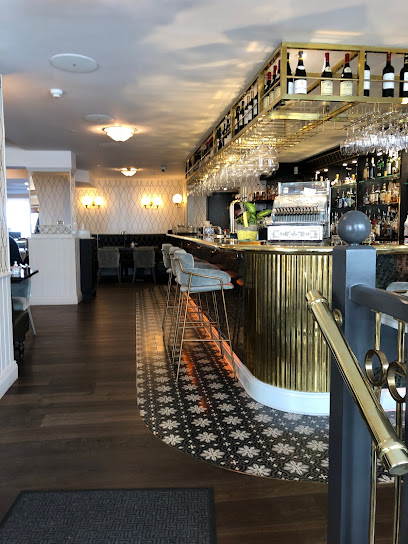
The Terrace Garden Cafe
Discover authentic Thai flavors at The Terrace Garden Cafe in Guernsey – where every dish tells a story!
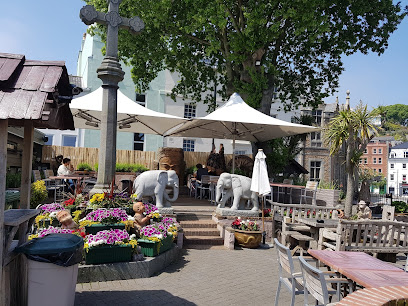
Ship & Crown
Experience coastal dining at its finest at Ship & Crown in Guernsey, where fresh flavors meet stunning ocean views.
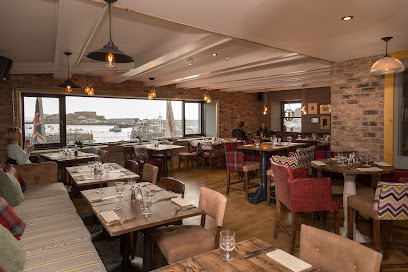
The Deerhound
Discover The Deerhound in Guernsey - A gastropub offering delicious local cuisine in a cozy atmosphere perfect for any occasion.
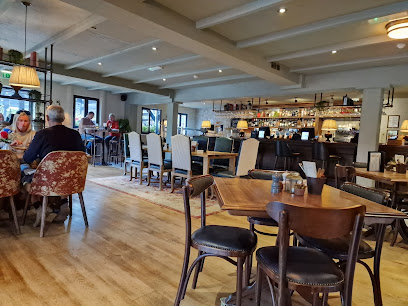
The Boathouse
Discover culinary excellence at The Boathouse in Guernsey – where stunning views meet delectable local cuisine.
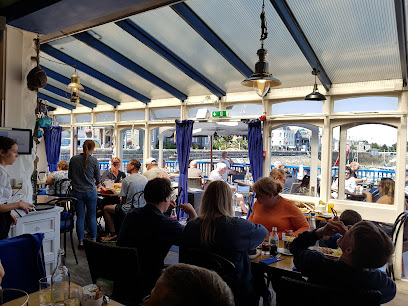
Nineteen Bar & Grill
Experience culinary delights at Nineteen Bar & Grill in Guernsey - where great food meets vibrant ambiance!
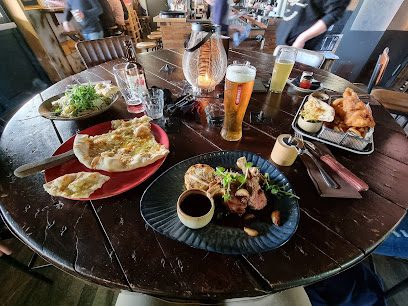
Coco
Discover Coco: A beloved brasserie on Guernsey's coast offering exquisite breakfasts and stunning seaside views.
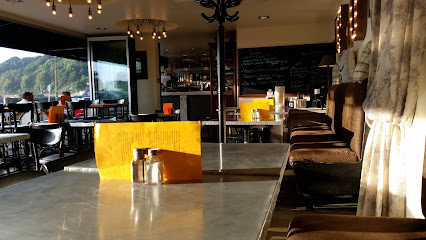
Hotel Jerbourg
Experience exquisite dining and breathtaking views at Hotel Jerbourg in St. Martins, Guernsey - where culinary delights meet coastal charm.
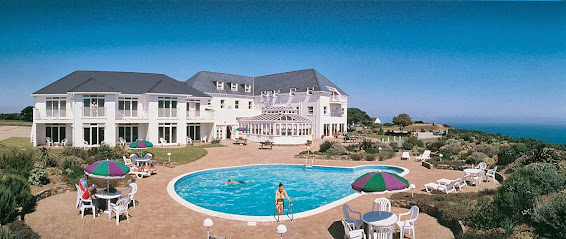
La Perla Restaurant
Discover exquisite local flavors at La Perla Restaurant in Guernsey – a must-visit destination for culinary enthusiasts.
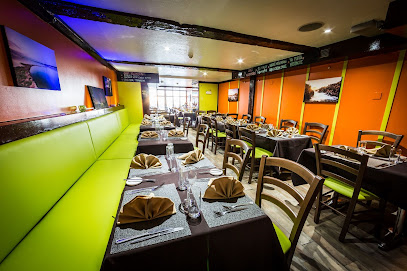
Le Nautique Restaurant
Discover exquisite seafood at Le Nautique Restaurant in St Peter Port, where fresh ingredients meet breathtaking harbor views.
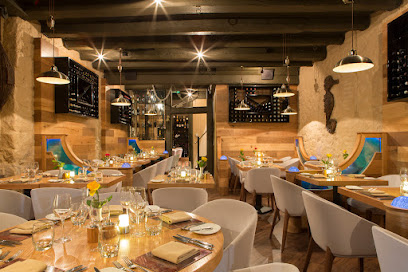
The Queens Inn - Randalls
Discover the culinary delights at The Queens Inn in Guernsey, where local flavors meet warm hospitality in a charming setting.
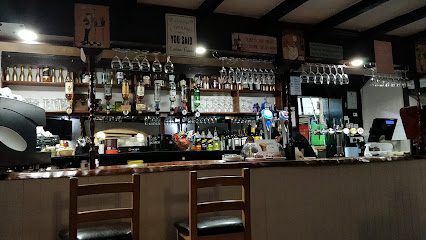
Markets, malls and hidden boutiques
Coop Grand Marché St. Martin
Explore local flavors at the Coop Grand Marché St. Martin, Guernsey's premier supermarket for fresh produce, local delicacies, and culinary delights.
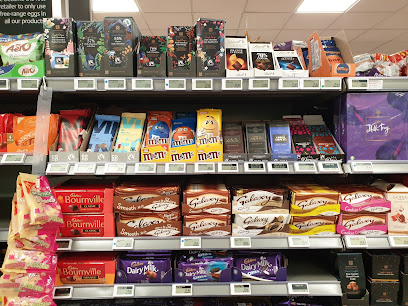
Iceland Supermarket St. Martin
Discover Iceland Supermarket in St. Martin for local groceries and fresh produce, perfect for tourists and locals alike.
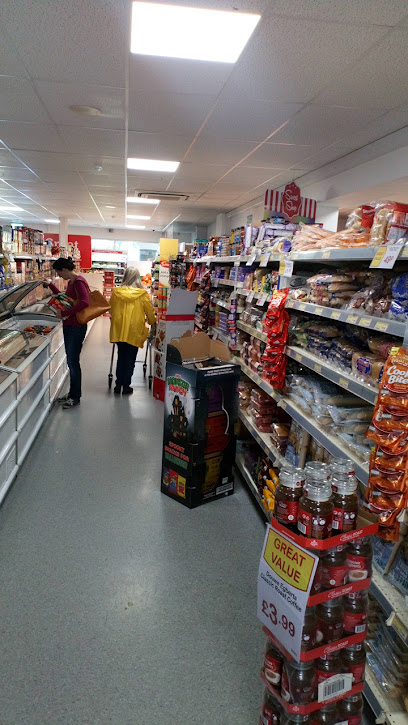
M&S Food
Explore M&S Food in Guernsey for an unmatched shopping experience filled with local flavors, quality produce, and gourmet treats.
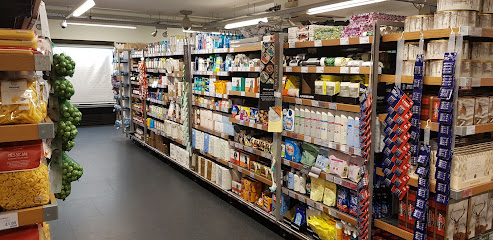
Candie Cache
Explore Guernsey's charm at Candie Cache, your ultimate convenience store for essentials and local delights.

Forest Stores
Explore the delightful Forest Stores in Guernsey for unique groceries and local flavors in a charming village setting.
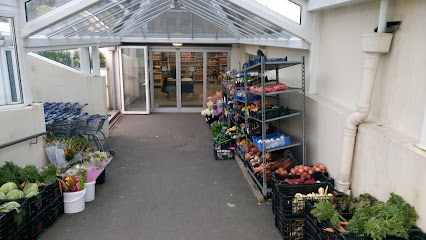
Matalan
Discover Matalan in Guernsey for stylish clothing and home essentials at amazing prices, perfect for tourists and locals alike.
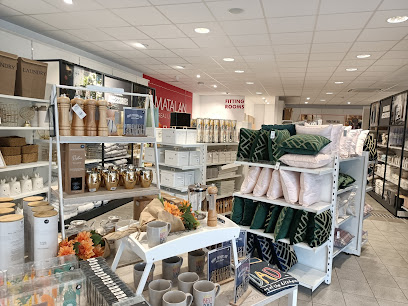
Catherine Best Ltd
Explore the exquisite craftsmanship of Catherine Best Ltd, a premier jewelry designer in Guernsey, where elegance meets island inspiration.
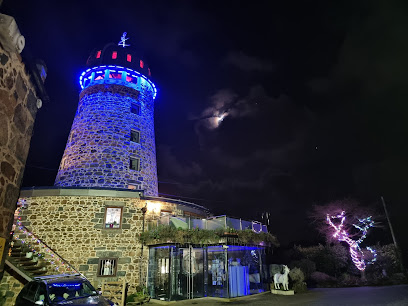
Adventure Cycles
Discover Guernsey on two wheels at Adventure Cycles – your ultimate bicycle store and repair shop offering expert advice and top-quality gear.
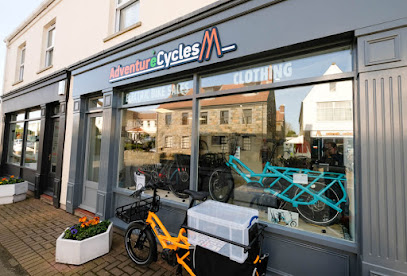
Ogiers
Discover stylish clothing and accessories at Ogiers, Guernsey’s favorite clothing store, perfect for tourists seeking local fashion.
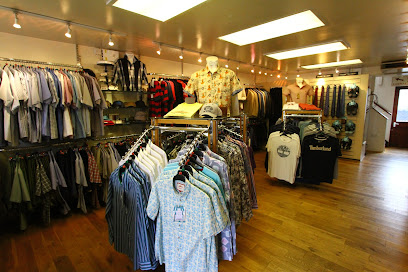
Model Shop
Explore the enchanting Model Shop in St. Peter Port, Guernsey, where scale models and toys come to life for enthusiasts and families alike.
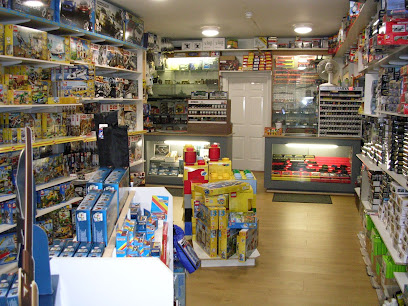
Soava Boutique
Discover unique handcrafted gifts and local treasures at Soava Boutique in Guernsey, a perfect stop for tourists seeking authentic souvenirs.
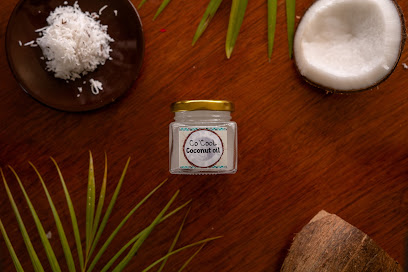
Cadeaux Guernsey Gift Shop
Explore Cadeaux Guernsey Gift Shop for unique souvenirs and local treasures that capture the essence of Guernsey's culture and charm.
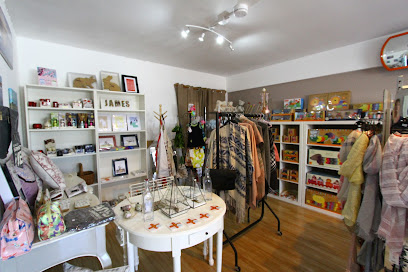
Les Bourgs Hospice Charity Shop
Explore the charm of thrift shopping at Les Bourgs Hospice Charity Shop in Guernsey, where every purchase supports local hospice care.
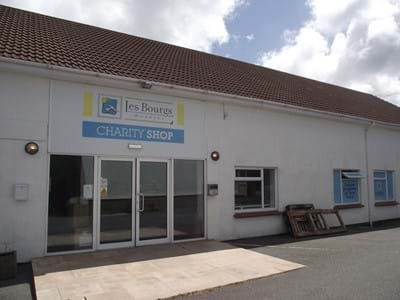
SEPHORA
Explore SEPHORA in Guernsey for an unparalleled beauty shopping experience with expert advice and exclusive products.
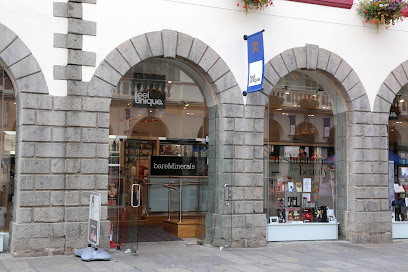
Penelope Hope
Discover unique home goods and local artistry at Penelope Hope, Guernsey's charming destination for handcrafted treasures.

Essential bars & hidden hideouts
Thomas De La Rue
Discover the vibrant atmosphere and delicious offerings of Thomas De La Rue, Guernsey's beloved gastropub and social hub.
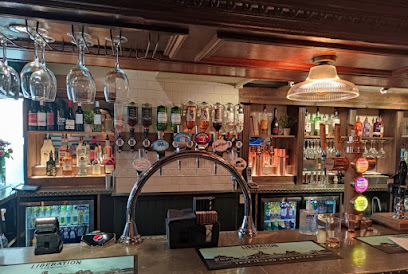
The Cock and Bull
Discover the lively atmosphere of The Cock and Bull, a premier pub in St. Peter Port, offering great food, local beers, and live music.
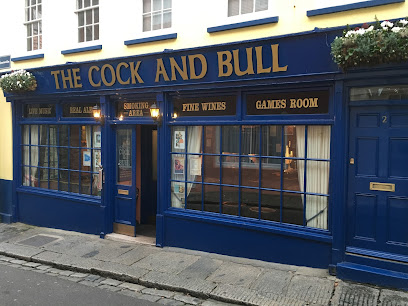
The Doghouse
Experience the best of Guernsey at The Doghouse, a lively gastropub with exquisite grill dishes, live music, and a vibrant sports atmosphere.
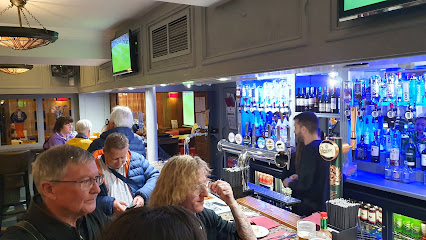
The Golden Lion
Discover the charm of The Golden Lion, a lively pub in Guernsey offering local brews, hearty meals, and a warm, welcoming atmosphere.
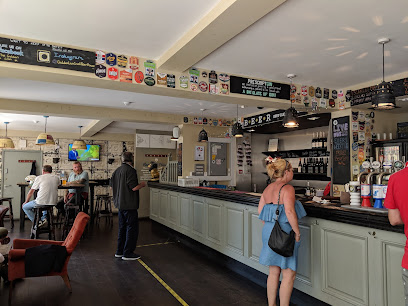
CORNERSTONE Social House
Experience the best of local cuisine and drinks at Cornerstone Social House, a premier gastropub in St. Peter Port, Guernsey.
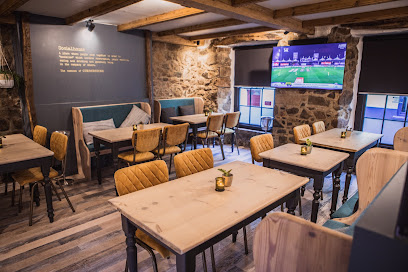
Albion House Tavern
Discover the vibrant atmosphere of Albion House Tavern, a beloved pub in Guernsey, perfect for unwinding with drinks and local flavors.
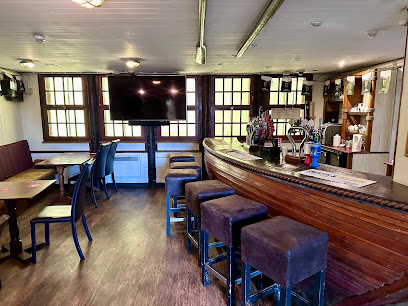
Amigos
Experience the vibrant nightlife of Guernsey at Amigos, the cocktail bar known for its creative drinks and lively atmosphere.
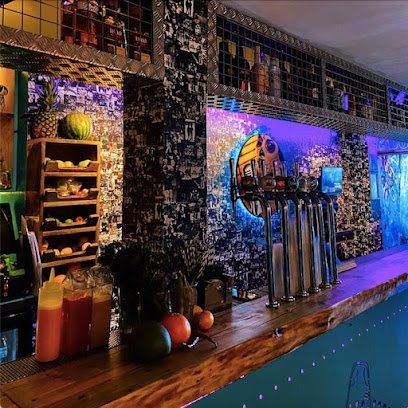
The Swan Inn
Experience the charm of Guernsey at The Swan Inn, a cozy bar offering a delightful selection of beverages in a welcoming atmosphere.
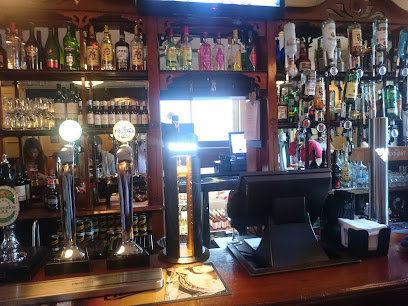
The Wicked Wolf
Experience the rich flavors of Guernsey at The Wicked Wolf, where fresh local ingredients meet exceptional culinary craftsmanship.
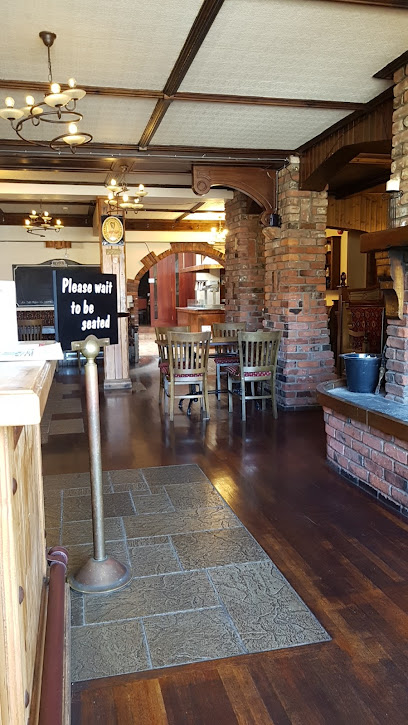
Harbour Lights
Discover the charm of Harbour Lights, a coastal pub in St. Peter Port offering stunning views, local flavors, and a vibrant atmosphere for all.
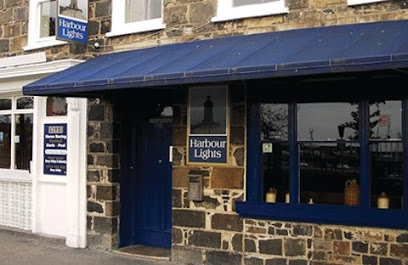
JB Parkers' Bar & Cellar
Experience the finest cocktails and exquisite wines at JB Parkers' Bar & Cellar, Guernsey's premier dining destination.
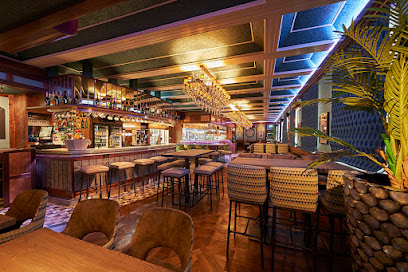
Mojito
Experience the vibrant nightlife of Guernsey at Mojito, where expertly crafted cocktails meet a lively atmosphere perfect for socializing.
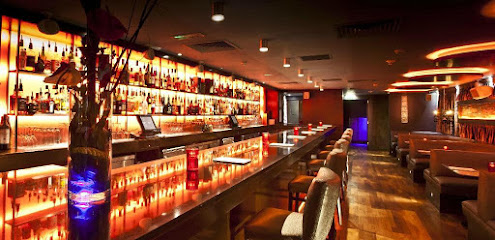
PingQuay
Experience the vibrant coastal atmosphere at PingQuay, a premier bar in Guernsey, where delightful drinks meet stunning views.
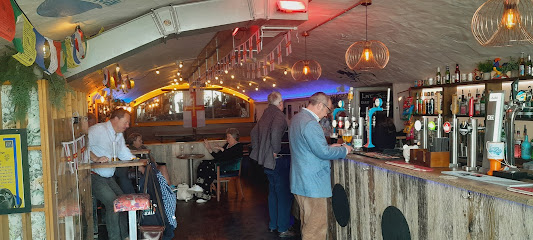
The Oak Bar
Discover The Oak Bar in Guernsey, a cozy pub offering a delightful selection of drinks and delicious local cuisine in a welcoming atmosphere.
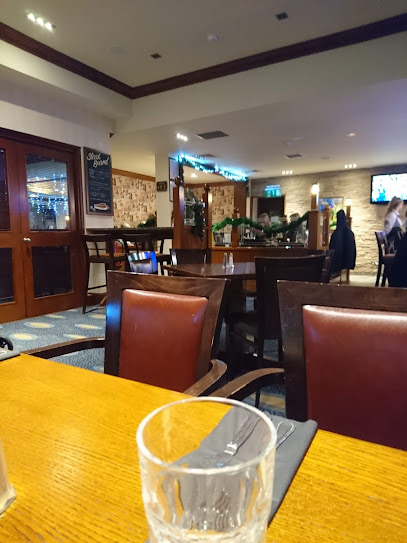
Local Phrases
-
- HelloBonjour
[bon-zhoor] - GoodbyeAu revoir
[oh ruh-vwahr] - YesOui
[wee] - NoNon
[noh] - Please/You're welcomeS'il vous plaît/De rien
[seal voo pleh/duh ree-uhn] - Thank youMerci
[mehr-see] - Excuse me/SorryExcusez-moi/Désolé
[ex-kew-zay mwah/dey-zoh-lay] - How are you?Comment ça va?
[koh-mohn sah vah] - Fine. And you?Bien. Et vous?
[byen/ay voo] - Do you speak English?Parlez-vous anglais?
[par-lay voo ahn-glay] - I don't understandJe ne comprends pas
[zhuh nuh kohm-prahn pah]
- HelloBonjour
-
- I'd like to see the menu, pleaseJe voudrais voir la carte, s'il vous plaît
[zhuh voo-dray vwahr lah kahrt, seal voo pleh] - I don't eat meatJe ne mange pas de viande
[zhuh nuh mahnzh pah duh vee-ahnd] - Cheers!Santé!
[sahn-tay] - I would like to pay, pleaseJe voudrais payer, s'il vous plaît
[zhuh voo-dray pay-ay, seal voo pleh]
- I'd like to see the menu, pleaseJe voudrais voir la carte, s'il vous plaît
-
- Help!Au secours!
[oh sek-oor] - Go away!Allez-vous en!
[al-ay vooz ahn] - Call the Police!Appelez la police!
[ah-peh-lay lah poh-leece] - Call a doctor!Appelez un médecin!
[ah-peh-lay uh meh-deh-sahn] - I'm lostJe suis perdu
[zhuh swee pair-doo] - I'm illJe suis malade
[zhuh swee mah-lahd]
- Help!Au secours!
-
- I'd like to buy...Je voudrais acheter...
[zhuh voo-dray zah-shtay] - I'm just lookingJe regarde juste
[zhuh ruh-gahrd zhuhst] - How much is it?Combien ça coûte?
[kohm-byen sah koot] - That's too expensiveC'est trop cher
[say troh shair] - Can you lower the price?Pouvez-vous baisser le prix?
[poo-veh voo bay-say luh pree]
- I'd like to buy...Je voudrais acheter...
-
- What time is it?Quelle heure est-il?
[kell ur eh-teel] - It's one o'clockIl est une heure
[eel eh tun ur] - Half past (10)Dix heures et demie
[dees urz ay duh-mee] - MorningMatin
[mah-tahn] - AfternoonAprès-midi
[ah-pray mee-dee] - EveningSoir
[swahr] - YesterdayHier
[yehr] - TodayAujourd'hui
[oh-zhoor-dwee] - TomorrowDemain
[duh-mahn] - 1Un
[uhn] - 2Deux
[duh] - 3Trois
[twah] - 4Quatre
[ka-truh] - 5Cinq
[sank] - 6Six
[sees] - 7Sept
[sept] - 8Huit
[wheat] - 9Neuf
[nerf] - 10Dix
[dees]
- What time is it?Quelle heure est-il?
-
- Where's a/the...?Où est...?
[oo eh] - What's the address?Quelle est l'adresse?
[kell eh lah-dress] - Can you show me (on the map)?Pouvez-vous me montrer (sur la carte)?
[poo-veh voo muh mohn-tray (soor lah kahrt)] - When's the next (bus)?Quand est le prochain (bus)?
[kahn eh luh proh-shahn (bus)] - A ticket (to ....)Un billet (pour ...)
[uhn bee-yay (poor)]
- Where's a/the...?Où est...?
History of St. Martin
-
The parish of St. Martin in Guernsey has a rich history dating back to the early medieval period. The area was initially settled by seafaring tribes, and evidence of their presence can be found in the dolmens and menhirs scattered throughout the parish. One of the most notable is the 'La Gran'mère du Chimquière,' an ancient Neolithic statue-menhir situated at the entrance of the St. Martin's Parish Church. The church itself, dating back to the 12th century, stands as a testament to the enduring significance of this area through the centuries.
-
Following the Norman Conquest of 1066, Guernsey, including St. Martin, became part of the Duchy of Normandy. This period saw the establishment of the feudal system and the construction of defensive structures to protect against invaders. St. Martin's Church became a focal point for the community, and the surrounding lands were divided among Norman lords. The parish's strategic location made it an important site for both defense and administration during the feudal era.
-
The Reformation brought significant religious changes to St. Martin, as it did to the rest of Guernsey. The parish, which had been predominantly Catholic, saw the establishment of Protestantism under the influence of the English Crown. This transition was not without conflict, as evidenced by the tragic burning of the Guernsey Martyrs in 1556. These events left a lasting impact on the religious landscape of St. Martin and are commemorated in local history.
-
During the English Civil War (1642-1651), Guernsey was a divided territory, with St. Martin serving as a Royalist stronghold. The island's strategic position made it a valuable asset, and St. Martin's residents found themselves in the midst of the conflict. Fortifications were strengthened, and the parish played a key role in the Royalist defense against Parliamentary forces. The legacy of this period is still evident in the parish's historical sites and local traditions.
-
The Napoleonic Wars (1803-1815) brought renewed attention to the defense of Guernsey, including St. Martin. Coastal fortifications were enhanced to protect against potential French invasions. Fort Grey, also known as the 'Cup and Saucer,' is a notable example of these efforts. Built in 1804, it served as a crucial lookout and defense point on the island's western coast. Today, Fort Grey houses a maritime museum that delves into the history of the island's coastal defenses and shipwrecks.
-
One of the most significant periods in St. Martin's history was the German occupation during World War II (1940-1945). Guernsey was the only part of the British Isles to be occupied by German forces. The impact on St. Martin was profound, with fortifications, bunkers, and tunnels constructed throughout the parish. The occupation brought hardship and resilience to the local population, and remnants of this period can be explored at sites like the German Underground Hospital at La Vassalerie, which now serves as a museum.
-
After the liberation in 1945, St. Martin, like the rest of Guernsey, underwent a period of recovery and rebuilding. The post-war years saw the development of infrastructure, housing, and community facilities. St. Martin transformed from a primarily rural parish to a more suburban and residential area, while still preserving its historical charm and natural beauty. Today, it is a vibrant community known for its picturesque landscapes, historical landmarks, and cultural heritage.
St. Martin Essentials
-
St. Martin in Guernsey can be reached primarily via air or ferry. The nearest airport is Guernsey Airport (GCI), which has regular flights from various UK cities and European destinations. From the airport, you can take a taxi or public bus to St. Martin. Alternatively, ferries operate from the UK and France to St. Peter Port, the capital of Guernsey. From there, St. Martin is a short taxi or bus ride away.
-
St. Martin is well-served by public buses that connect it to other parts of Guernsey. Buses are frequent and affordable. Taxis are readily available and can be hailed on the street or booked in advance. For those who prefer to explore at their own pace, rental cars and bicycles are available. St. Martin is also pedestrian-friendly, making walking a viable option for getting around.
-
The official currency in Guernsey is the British Pound Sterling (GBP). Credit and debit cards are widely accepted in hotels, restaurants, and shops. However, it is advisable to carry some cash for smaller establishments or in case of technical issues with card machines. ATMs are available throughout St. Martin and the rest of Guernsey.
-
St. Martin is generally a safe area for tourists. Crime rates are low, and violent crime is rare. However, standard precautions should be taken, such as avoiding poorly lit areas at night and keeping an eye on personal belongings in crowded places. There are no specific high-crime areas targeting tourists, but vigilance is always recommended.
-
In case of emergency, dial 999 for immediate assistance. The local police station and medical facilities are located in nearby St. Peter Port. It is recommended to have travel insurance that covers medical emergencies. Pharmacies are available in St. Martin for minor health issues, and staff are generally helpful in advising on over-the-counter medications.
-
Fashion: Do dress in layers, as the weather can be unpredictable. Smart-casual attire is generally acceptable. Religion: Do respect local customs, especially when visiting churches. Public Transport: Do have the exact fare ready when boarding buses, and avoid eating or drinking on public transport. Greetings: Do greet people with a friendly 'hello' or 'good day'. Shaking hands is also common. Eating & Drinking: Do try local delicacies like fresh seafood and Guernsey dairy products. Don't refuse food or drink offerings, as it is considered impolite.
-
To experience St. Martin like a local, visit the weekly farmers' market where you can buy fresh produce and local crafts. Engage with residents, as they are friendly and often willing to share insights about the area. Don't miss walking the scenic cliff paths for stunning coastal views. For a unique experience, visit the Little Chapel, a charming miniature church decorated with seashells and broken china.
Trending Landmark in St. Martin
-
Castle Cornet
-
The Little Chapel
-
Hauteville - Victor Hugo House
-
German Occupation Museum
-
Guernsey Museum & Art Gallery
-
Jerbourg Kiosk
-
Sausmarez Manor
-
German Underground Hospital
-
Fort Grey Shipwreck Museum
-
La Villette Hotel
-
Town Church of St. Peter Port
-
Fort Hommet
-
National Trust of Guernsey - Folk and Costume Museum
-
Vale Castle
-
Moulin Huet Bay
Nearby Cities to St. Martin
-
Things To Do in St. Andrew
-
Things To Do in Forest
-
Things To Do in St. Peter Port
-
Things To Do in Castel
-
Things To Do in St. Saviour
-
Things To Do in Vale
-
Things To Do in St. Sampson
-
Things To Do in St. Anne
-
Things To Do in St. Ouen
-
Things To Do in St. Peter
-
Things To Do in St. Brelade
-
Things To Do in St. Lawrence
-
Things To Do in St. Aubin
-
Things To Do in Trinity
-
Things To Do in St. Helier









